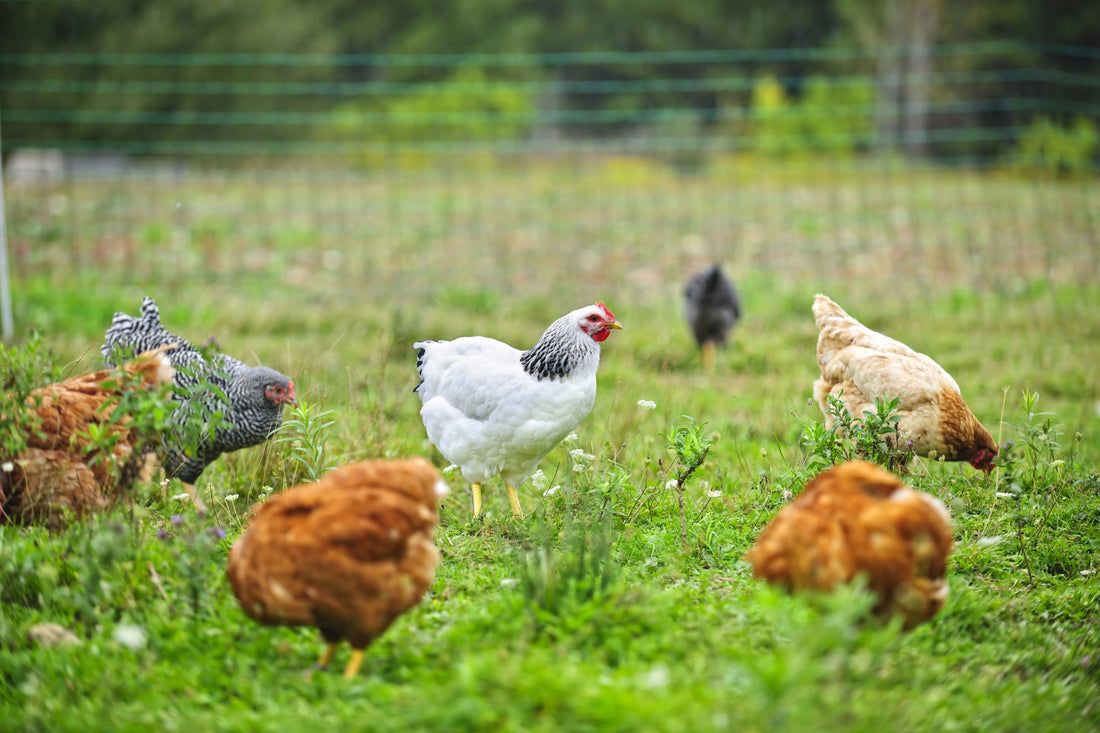Keeping chickens can be a rewarding experience, but it comes with its fair share of challenges. From integrating new chicks with adult birds to managing feather pecking and noisy flocks, poultry enthusiasts often encounter various issues that require careful attention and proactive solutions.
Integrating Young Birds with the Flock
Integrating new chicks with adult birds can be a delicate process that requires patience and careful planning. Young chicks are vulnerable to bullying and aggression from older birds, so it's essential to provide a safe and secure environment for them to acclimate to their new surroundings. Start by keeping the chicks separate from the adult flock but within sight and sound to allow them to become familiar with each other. Once the chicks are larger and more robust, gradually introduce them to the adult birds under supervised conditions, ensuring plenty of space and resources to minimize competition and aggression.
Feather Pecking: Understanding and Preventing Aggressive Behavior
Feather pecking is a common behavior observed in chickens, where birds peck at each other's feathers, often leading to injury and stress within the flock. This behavior can be triggered by various factors, including overcrowding, boredom, nutritional deficiencies, and social hierarchy issues. To prevent feather pecking, provide ample space and enrichment for your birds, such as access to outdoor areas, dust baths, and perches. Ensure a balanced diet with adequate protein and nutrients to meet their nutritional needs. Additionally, observe your flock closely for signs of aggression or bullying and intervene promptly to prevent escalation.
Noisy Flocks: Managing Excessive Vocalization
Chickens are naturally vocal creatures, but excessive noise can become a nuisance, especially in urban or suburban settings. Managing noisy flocks requires understanding the underlying reasons for vocalization and implementing strategies to address them effectively. Noisy behavior in chickens can be caused by factors such as hunger, stress, boredom, or environmental disturbances. Provide a balanced diet, comfortable housing, and opportunities for mental stimulation to reduce stress and boredom in your flock. Additionally, consider implementing sound-dampening measures in your coop and surrounding area to minimize noise disturbances for neighbors.
Rooster Behavior: Dealing with Aggression and Crowing
Roosters play essential roles in the flock hierarchy, but their aggressive behavior and incessant crowing can pose challenges for chicken keepers, particularly in residential areas. To manage rooster aggression, ensure a balanced ratio of hens to roosters to minimize competition and aggression among males. Provide adequate space and resources to reduce stress and territorial behavior. If aggression becomes a significant issue, consider separating the offending rooster from the flock or rehoming him to a more suitable environment. Additionally, soundproofing the coop can help minimize noise disturbances caused by crowing.
Establishing a Pecking Order: Understanding Social Dynamics
Chickens have complex social hierarchies within their flocks, with each bird vying for its place in the pecking order. Understanding these social dynamics is essential for managing flock behavior and preventing conflicts. Allow your chickens to establish their pecking order naturally through interactions and observations. Provide ample space, resources, and distractions to minimize competition and aggression among flock members. Intervene only if aggressive behavior becomes excessive or leads to injury, using methods such as temporary separation or rehoming to restore harmony within the flock.
Environmental Enrichment: Keeping Chickens Happy and Healthy
Environmental enrichment is key to maintaining the well-being and behavioral health of your flock. Provide a stimulating environment with plenty of opportunities for natural behaviors such as foraging, dust bathing, and perching. Incorporate items such as hanging treats, mirrors, and puzzle feeders to keep your chickens mentally and physically engaged. Rotate and vary enrichment items regularly to prevent boredom and encourage exploration. By providing a stimulating environment that meets their behavioral needs, you can reduce stress, aggression, and undesirable behaviors in your flock.
Coop Design: Creating a Safe and Comfortable Living Space
The design and layout of your chicken coop play a significant role in managing flock behavior and minimizing conflicts. Ensure your coop provides adequate space, ventilation, and lighting to promote health and well-being. Include features such as roosts, nesting boxes, and perches to accommodate natural behaviors and hierarchies. Use durable materials and secure construction to protect your flock from predators and environmental hazards. Regularly clean and maintain the coop to prevent the buildup of waste and pathogens that can lead to health problems and behavioral issues.
Behavioral Observations: Monitoring Flock Dynamics
Regular observation of your flock's behavior is essential for identifying and addressing issues before they escalate. Spend time observing your chickens' interactions, noting any signs of aggression, stress, or abnormal behavior. Keep a record of flock dynamics, including social hierarchies, mating behavior, and territorial disputes. This information will help you identify patterns and trends over time, allowing you to implement targeted interventions and adjustments to manage flock behavior effectively.
Navigating Chicken Challenges
Addressing common challenges such as integrating chicks with adult birds, managing feather pecking, and handling noisy flocks requires careful observation, proactive management, and a deep understanding of chicken behavior. By providing a supportive environment, meeting their behavioral needs, and intervening promptly when necessary, you can promote harmony and well-being within your flock. Remember that each chicken is unique, and finding the right solutions may require patience and experimentation. With dedication and care, you can overcome these challenges and enjoy a fulfilling experience as a chicken keeper.

